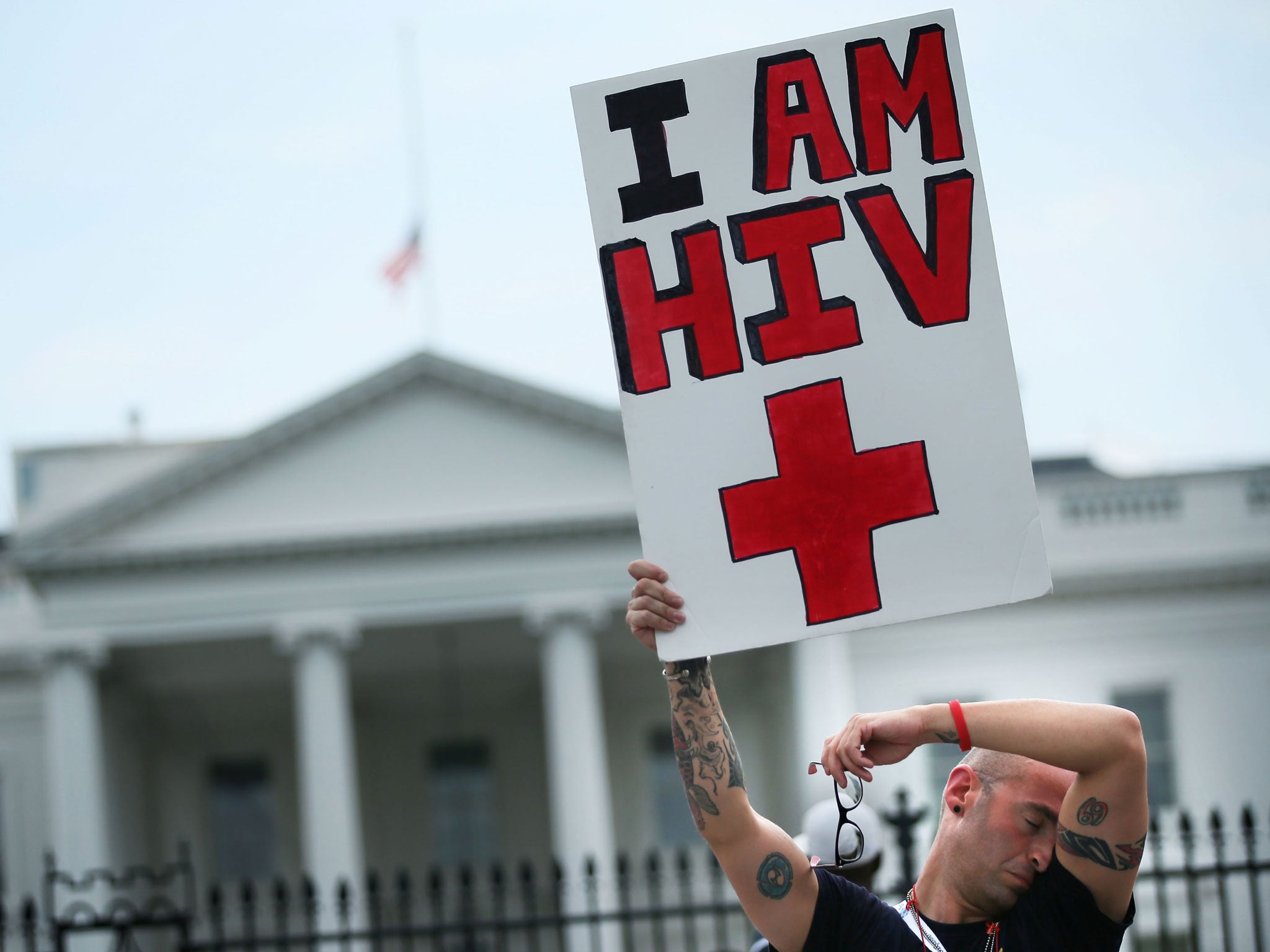HIV: Winning abroad, losing at home
As treatment for the virus improves in the developing world, UK attitudes towards the epidemic are slipping into a steady and serene regression

Your support helps us to tell the story
From reproductive rights to climate change to Big Tech, The Independent is on the ground when the story is developing. Whether it's investigating the financials of Elon Musk's pro-Trump PAC or producing our latest documentary, 'The A Word', which shines a light on the American women fighting for reproductive rights, we know how important it is to parse out the facts from the messaging.
At such a critical moment in US history, we need reporters on the ground. Your donation allows us to keep sending journalists to speak to both sides of the story.
The Independent is trusted by Americans across the entire political spectrum. And unlike many other quality news outlets, we choose not to lock Americans out of our reporting and analysis with paywalls. We believe quality journalism should be available to everyone, paid for by those who can afford it.
Your support makes all the difference.In a paper published last week, the United Nations shared its latest findings on the global HIV and Aids epidemic. Compared to other UN reports from the past fortnight – “sarin gas definitively used in Syria”, “Arctic Ice Sea melting faster than expected” – this one made for unexpectedly cheery reading. Globally, new HIV infections have fallen by a third in the last decade. Worldwide, the number of new infections in children has dropped from 550,000 in 2001 to 260,000 today – a staggering 52 per cent decrease. Even sub-Saharan Africa - the region responsible for the bulk of HIV transmission in the past – has seen new HIV infections drop by a remarkable 34 per cent.
It is patently obvious that there is much to celebrate regarding recent HIV breakthroughs. But a cruel, unspoken irony also attends the release of this UN report: as we step up the global fight against HIV, we are losing ground on home soil.
Communicating this isn’t the easiest of tasks. We tend to think the HIV virus was tackled sometime around the evening of March 21st, 1994 when Tom Hanks won the Best Actor Award for Philadelphia and it was commonly accepted that the west might start taking HIV and its protection, treatment and stigma seriously.
Not so according to Lisa Power– Policy Director for the Terence Higgins Trust – who says the UK, along with other big Western countries including the US, has remarkably high rates of HIV transmission: particularly in gay men. The reason, says Power? “Sex education in this country is broken and it needs to be fixed”.
She’s not over-exaggerating. Cast your mind back to those school sex education lessons. Remember being taught that one in eight men on the London gay scene are HIV positive? Or that one in 20 twenty suffer from the infection nationally? Or perhaps you recall being told that 24 per cent of UK HIV sufferers – about 24,000 people – are undiagnosed and don’t know they carry the infection?
There is, of course, no such mandate for teaching children anything of the sort. At present the national curriculum - which only applies in state schools and is infamously unenforced nationwide - says students should be taught about the mechanics of sex and contraception, and the biology of HIV. The specifications stop there: no statistics on HIV and no explicit mention of the risks of unprotected gay sex.
Meanwhile the prevalance of online pornography in the lives of the children continues - justifiably - to dominate the headlines. But the HIV issue must also be rolled into the discussion. The information on HIV currently being offered at school is astonishingly insufficient; especially when you consider that over half of all sexually transmitted diseases are found in the 16-24 age bracket.
Most chilling of all is Michael Gove’s outright apathy on the subject. “We trust teachers to deliver sex and relationship education in the right way,” said the Education Secretary earlier this month. Meanwhile, a Department for Education statement added that government’s most recent review had “found that the existing guidance offers a sound framework for sex and relationship education”.
That is a plain and obnoxious untruth. Anyone touched by HIV in this country will know that young people are not being given the facts they deserve and that better efforts at prevention would depend – almost totally – on a radical sex education overhaul.
But the refusal to institute proper HIV education in schools also comes at a wider, societal cost. HIV mythologizing, says Power, is back on the rise. Her charity, the Terence Higgins Trust, is receiving more calls from HIV sufferers being mistreated by employers than they have done in years. HIV positive people – she tells me – have been refused work from hairdressers, clothing warehouses and the hospitality business.
Reform through austerity is all that’s really been heard from Michael Gove and the Education Department in the last three years: pension age increase, deregulation on the requirement for PGCE qualified teachers in schools, a two year wage freeze for staff in the state sector. Little of it has been cause for celebration – as evidenced by current strike action happening around the UK. But as the Education Secretary is petitioned from all sides by teachers, unions, and online pornography naysayers - one more voice he should also strain to hear belongs to campaigners asking for a meaningful rethink on HIV and education in schools. Failing to act on that particular call for reform won’t just cost teachers a proper wage, or children a decent education – it will cost lives.
Join our commenting forum
Join thought-provoking conversations, follow other Independent readers and see their replies
Comments